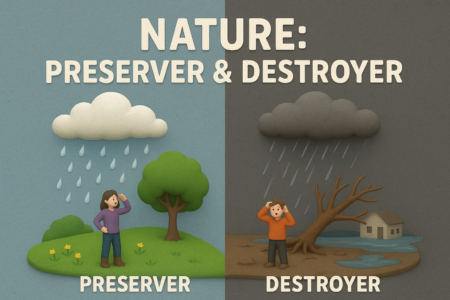Introduction
Life is full of challenges and obstacles, and learning to navigate these hurdles with resilience is a crucial skill for success. In the face of adversity, resilient individuals can adapt, persevere, and thrive. In this blog, we delve into the importance of building resilience in students and explore essential life skills that foster resilience. By equipping students with these skills, educators can empower them to overcome setbacks, cope with stress, and emerge stronger in the face of adversity.
Understanding Resilience
Resilience is the ability to bounce back from setbacks, adapt to change, and thrive in the face of adversity. It involves recognizing challenges as opportunities for growth, maintaining a positive outlook, and developing coping strategies to navigate difficult situations. Resilient individuals possess a sense of self-efficacy, optimism, and perseverance that enables them to overcome obstacles and achieve their goals.
The Importance of Resilience in Education
Resilience is a critical factor in academic success and overall well-being. Students who are resilient are better equipped to handle academic pressures, setbacks, and transitions. They are more likely to persist in the face of challenges, seek help when needed, and maintain a positive attitude towards learning. By fostering resilience in students, educators can empower them to thrive academically and emotionally.
Essential Life Skills for Building Resilience
- Emotional Regulation:
Emotional regulation involves recognizing and managing one’s emotions in healthy and constructive ways. Students who are skilled in emotional regulation can cope with stress, frustration, and disappointment without becoming overwhelmed. Educators can teach emotional regulation skills through activities such as mindfulness, deep breathing exercises, and journaling. - Problem-Solving:
Resilient individuals are adept problem-solvers who can identify solutions to challenges and take proactive steps to address them. Educators can promote problem-solving skills by presenting students with real-world challenges and encouraging them to brainstorm creative solutions. By empowering students to take ownership of their problems and seek out solutions, educators foster a sense of agency and resilience. - Self-Reflection:
Self-reflection is the process of examining one’s thoughts, feelings, and actions to gain insight and self-awareness. Students who engage in self-reflection can learn from their experiences, identify areas for growth, and develop strategies for improvement. Educators can facilitate self-reflection by providing opportunities for students to journal, set goals, and assess their progress over time. - Social Support:
Social support plays a crucial role in building resilience by providing individuals with a network of friends, family, and mentors who offer encouragement, guidance, and empathy during difficult times. Educators can foster social support by creating a supportive classroom environment where students feel connected, valued, and accepted. By promoting collaboration, teamwork, and peer mentoring, educators can strengthen students’ social support networks and resilience. - Optimism:
Optimism involves maintaining a positive outlook and belief in one’s ability to overcome challenges and achieve goals. Students who possess optimism are more resilient in the face of setbacks, as they view challenges as temporary and surmountable obstacles. Educators can cultivate optimism by highlighting students’ strengths and successes, reframing setbacks as learning opportunities, and fostering a growth mindset.
Nurturing Resilience in the Classroom
- Encourage Risk-Taking:
Encourage students to step outside their comfort zones, take risks, and embrace challenges. By creating a safe and supportive environment where mistakes are viewed as opportunities for learning, educators empower students to develop resilience and confidence. - Promote Growth Mindset:
Foster a growth mindset by emphasizing the power of effort, perseverance, and learning from mistakes. Encourage students to view setbacks as temporary and surmountable obstacles on the path to success. By promoting a growth mindset, educators empower students to develop resilience and a belief in their ability to overcome challenges. - Teach Coping Strategies:
Teach students practical coping strategies for managing stress, anxiety, and adversity. Provide resources and tools for stress management, such as relaxation techniques, time management skills, and healthy coping mechanisms. By equipping students with coping strategies, educators empower them to navigate challenges with resilience and self-efficacy.
Real-Life Examples of Resilience
Helen Keller:
Despite being deaf and blind from a young age, Helen Keller overcame immense challenges to become a renowned author, lecturer, and activist. Through perseverance, determination, and the support of her teacher, Anne Sullivan, Keller learned to communicate, advocate for social justice, and inspire millions around the world.
Nick Vujicic:
Born without arms and legs, Nick Vujicic faced numerous obstacles and challenges throughout his life. However, he refused to let his physical limitations define him, instead choosing to focus on his strengths and opportunities. Today, Vujicic is a motivational speaker, author, and advocate for individuals with disabilities, inspiring others to embrace resilience and live life to the fullest.
Applying Resilience Beyond the Classroom
Resilience is a life skill that extends beyond the classroom and into all aspects of life. By cultivating resilience in students, educators prepare them to navigate the challenges of adolescence, adulthood, and beyond. Whether facing academic pressures, personal setbacks, or societal challenges, resilient individuals are better equipped to adapt, persevere, and thrive in the face of adversity.
Conclusion
Building resilience in students is essential for their academic success, personal well-being, and future success in life. By equipping students with essential life skills such as emotional regulation, problem-solving, and optimism, educators empower them to overcome challenges, persevere in the face of adversity, and achieve their goals. As educators, we have the power to nurture resilience in students and prepare them to thrive in an ever-changing world. Let us embrace this opportunity to cultivate resilience in the next generation of leaders, innovators, and change-makers.







